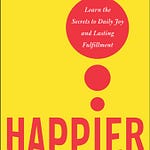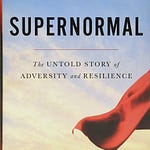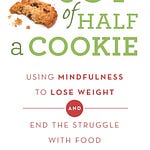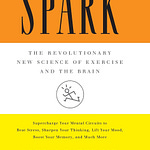Dear friends, good evening! I am Tom Niklas, a seasoned writer and book reviewer. 😁 Welcome everyone to the ReadVault club, join us in reading 52 books a year together!
Today I am going to enthusiastically recommend an outstanding book - Coping with Anxiety. This insightful book explores effective strategies for managing anxiety, and I'm certain anyone who reads it will find its wisdom deeply resonating.
In our fast-paced modern world filled with uncertainties, anxiety symptoms seem increasingly pervasive. I myself used to frequently feel anxious and unsettled for various reasons, which severely impacted my quality of life. However, I eventually realized this was largely due to a poor understanding of anxiety and a lack of skills for addressing it skillfully. Not until reading this revelatory book did the clouds finally part to reveal a path towards mastering anxiety with simplicity and efficacy!
Firstly, the author elucidates how anxiety is actually an innate self-protective response - much like our ancestors' vigilance and wariness when facing beasts, so we can sense danger early and take action. So to some degree, a moderate amount of anxiety safeguards our security.
However, in our relatively safe modern settings, our anxiety reactions often become excessive and uncontrolled.
For example, a friend of mine was tremendously nervous before a job interview, fearing the interviewer might suddenly ask some tricky questions. Yet the interview went smoothly, and in hindsight he realized his anxious response was really overblown and unnecessary.
For urban dwellers today, the "threats" we face stem mostly from our own unlimited imaginings rather than actual external dangers. Thus, we need to relearn how to appropriately leverage anxiety as a self-defense mechanism, rather than being controlled by it.
Additionally, the book also articulately differentiated between anxiety and fear. I recall the author using a brilliant analogy, saying fear is like seeing a rattlesnake so you know what is frightening you; whereas anxiety is more like perpetually worrying a snake might suddenly appear, without knowing exactly what is distressing you. Also, anxiety affects us completely - physically, behaviorally, mentally - which can drive a person crazy. Reading this, I remember a light bulb going off, realizing I'd never been clear what exactly I was anxious about!
I have a friend who always gets tremendously anxious when driving over a certain bridge, fearing it might collapse. Despite the bridge being structurally sound with no incidents, her anxiety amplifies an undefined fear of the unknown. I think this nicely illustrates the distinction between anxiety and fear.
Finally, the author explains how anxiety affects us on physiological, behavioral and psychological levels. For instance, when anxious you may experience accelerated heartbeat, muscle tension and other bodily signs; your behavior may also be impacted, avoiding socialization or going out; and psychologically you suffer tormenting feelings of dread and insecurity.
Once I had to give a speech to hundreds of people, and my anxiety kept me up the entire prior night. During the talk my voice shook, I could barely speak. This exemplifies how anxiety truly disrupts someone comprehensively. Therefore addressing anxiety requires multi-pronged interventions, not just psychological adjustment.
Next, the author thoroughly describes 7 common types of anxiety disorders, so you can self-diagnose which manifestation you experience during anxiety. First is panic disorder, chiefly characterized by recurrent, intense panic attacks without obvious external triggers. A friend of mine has this - sometimes while driving or in a meeting, he'll suddenly feel palpitations and dizziness, severely impacting his work and life.
Second is agoraphobia, involving fear of situations where escape might be difficult, like crowded open spaces. Afraid of having a panic attack, people avoid these situations. An acquaintance of mine actually cannot take public transportation alone, relying on family for rides, sadly deteriorating his quality of life.
Third is social anxiety disorder - an excessive fear of humiliation or embarrassment under public scrutiny in social settings. My cousin has this - at his own wedding he was so nervous he could barely speak, even making his bride cry.
Fourth, specific phobias involve intense fear and avoidance of particular things or situations, like snakes, spiders, or flying. I remember being terrified of thunderstorms as a child, burying myself under blankets when it thundered.
Fifth, generalized anxiety involves pervasively worrying about many things for over six months. My sister is like this - she's constantly anxious about her kids, mortgage, parents' health, and more.
Sixth, obsessive compulsive disorder causes repetitive compulsions and obsessions significantly interfering with life. An ex-colleague had a compulsion for hand washing, constantly washing her hands even when inappropriate, which greatly reduced her work productivity.
Finally, post-traumatic stress disorder involves anxiety symptoms like nightmares after experiencing trauma. The author shared a war veteran who often had nightmares and was easily startled after returning from duty - a classic case.
I recognized having some generalized anxiety symptoms myself. Identifying your specific anxiety types is crucial for effective prevention and treatment.
Now that we understand the myriad anxiety disorders, what actually causes anxiety? Firstly, the author cautions us against two extreme viewpoints.
The first is the biological perspective - anxiety stems purely from brain chemical imbalances. No doubt, some anxiety relates to our neurophysiology. However, oversimplifying anxiety as a purely biological phenomenon is incomplete.
Listen to this episode with a 7-day free trial
Subscribe to ReadVault to listen to this post and get 7 days of free access to the full post archives.










